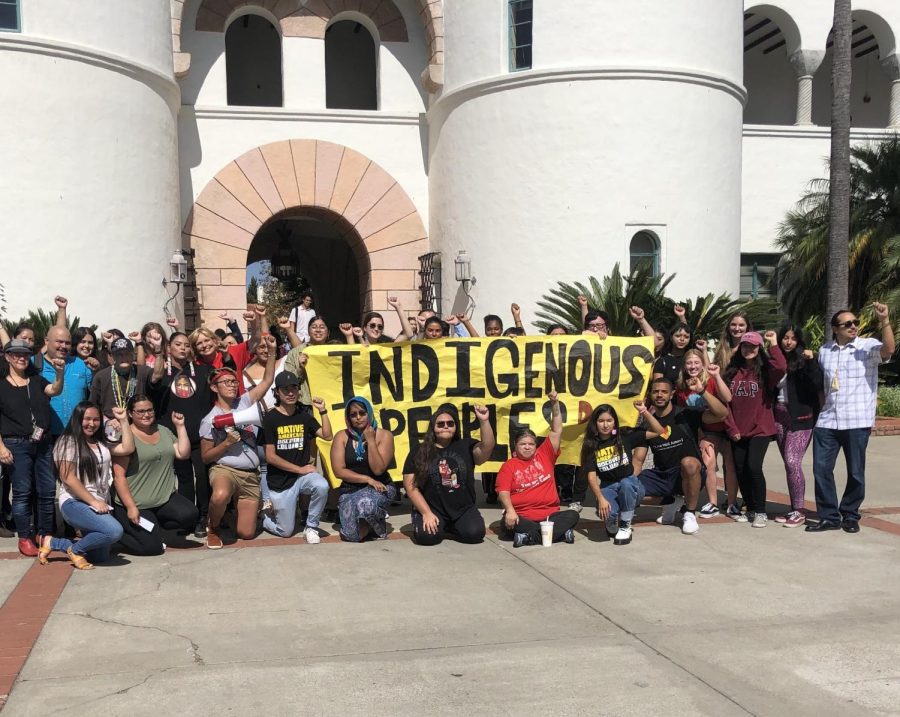In the United States, the second Monday in October has historically been known as Columbus Day.
However, the Native American Student Alliance honored Indigenous People’s Day instead.
On Oct. 14, members of the Native American Student Alliance, local tribes and allies gathered in front of Hepner Hall to commemorate and celebrate Indigenous people across the globe. The rally began with speeches from members of NASA. Members of various tribes in the San Diego area also spoke and performed traditional songs.
The rally focused on the stories, experiences and history of the Indigenous people.
“Our motives are to make space for us to have our narratives heard, celebrate our resiliency and show the true history and ongoing legacy of colonization here in San Diego,” interdisciplinary studies senior and NASA chair Lane Yazzie said.
Members of NASA passed out fliers to attendees and passersby with instructions on how to be a strong ally of Indigenous students and community members. Listening and learning, showing up to support, acknowledging the land you occupy and investing in Indigenous resources were four ways NASA sought support.
“November is Native American Heritage Month,” Yazzie said. “That’s one of those aspects of showing up and showing out and supporting us through that. There’s a lot of opportunities to support us in coming to our events, (being an ally) is a continuous process.”
NASA believes the celebration of Indigenous peoples is especially relevant to San Diego because of the city’s history.
“San Diego has the most tribes out of any city in America,” American Indian studies sophomore and NASA secretary Skylar Beasley said. “19 tribes of people have lived here for thousands of years. Even in California, there are more Natives than in any other state so I think it’s really important to celebrate it here on campus.”
Despite a large number of tribes, Indigenous students are an underrepresented group at SDSU.
“Native Americans make up less than 1% at the university,” Yazzie said.
SDSU has already begun working with NASA to spread awareness and show respect for Indigenous tribes through banners designed by the association’s members.
“I think that’s really important to acknowledge the land we’re on and the people that lived here long before this university existed,” Beasley said.
Sustainability junior Norah O’Neill, who attended the event after hearing about it online. said it is the responsibility of schools to properly teach all parts of history, no matter how difficult it may be to accept.
“It is hard to say our country was built on a lot of hate and violence, but it’s part of our history and we need to know that that’s where we came from,” she said.
In order for change to happen in regard to the respect and recognition of Indigenous people, O’Neill said constant awareness of our history is crucial.
“Wherever you are, knowing that the land you are on someone else’s land first. Just having it in the back of your mind, we’re here but someone else was here first,” O’Neill said.







